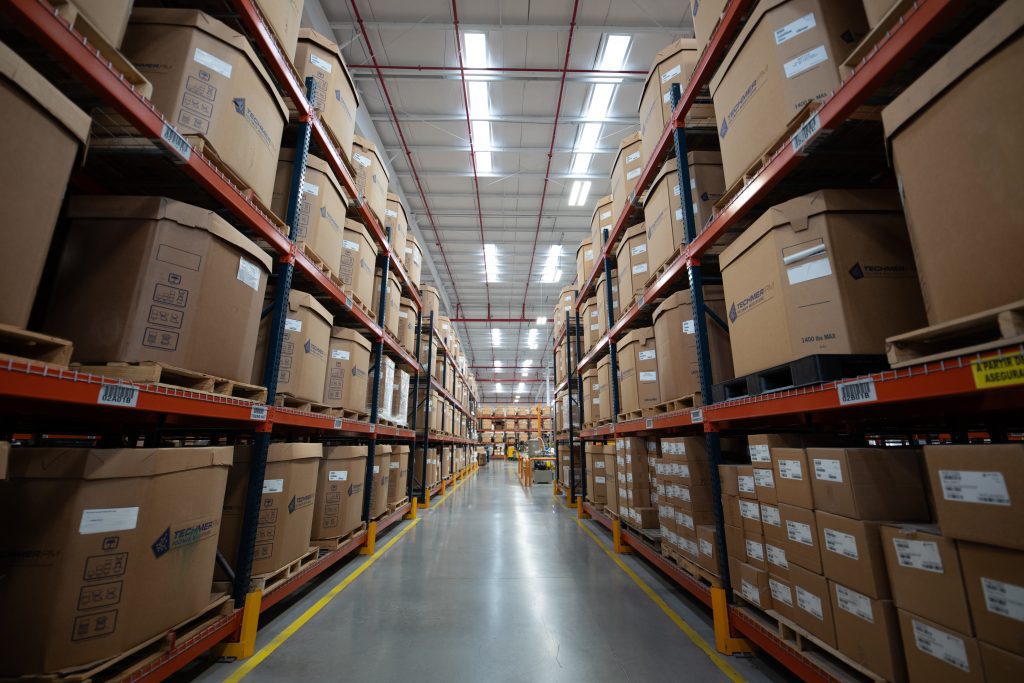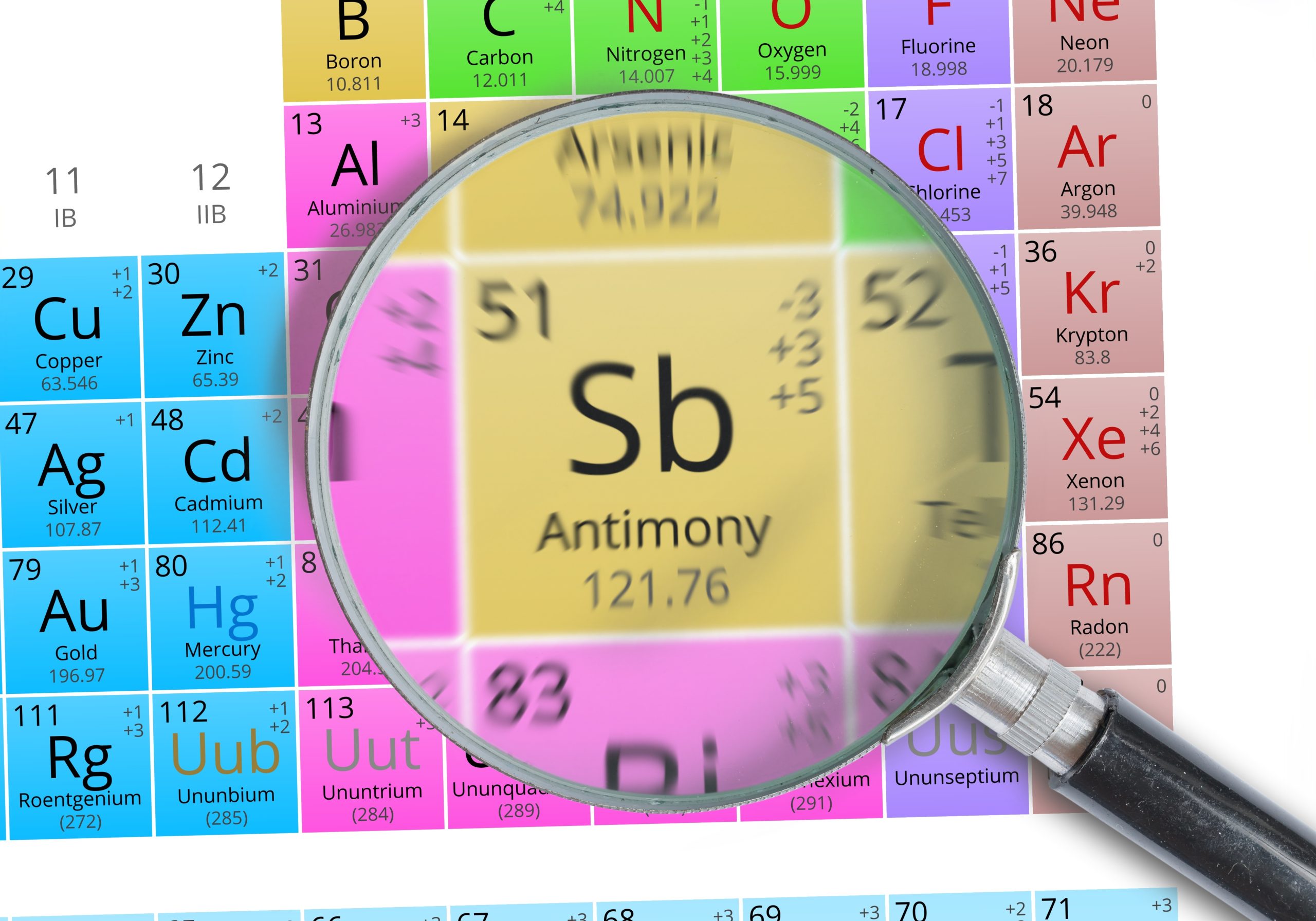The global market for raw materials is constantly evolving, and one of the most recent significant changes has been the situation surrounding the supply of antimony.
This important element, used in various industrial applications, has seen fluctuations in availability and pricing due to geopolitical tensions, regulatory changes, and market dynamics.
This article will explore the current challenges facing the antimony market and examine the alternative materials available in the market.
What is Antimony Used For?
Antimony is a metalloid primarily used as a flame retardant in plastics, textiles, and electronics. It is also used in the production of lead-acid batteries, ceramics, and glass. Antimony’s unique properties make it an essential component in enhancing the safety and performance of various products. However, the heavy reliance on antimony has also made various industries vulnerable to supply chain disruptions and price volatility.
What Products Use Antimony?
Several common plastics utilize antimony as a flame retardant, including:
- ABS (Acrylonitrile Butadiene Styrene): Commonly used in electronics and home appliance casings, often with brominated flame retardants.
- Electrical Connectors, Wire, and Cable: Typically incorporate materials like Polyamide, and Polypropylene for insulation, mechanical strength, and flame retardancy.
- HIPS (High Impact Polystyrene): Used in TV and monitor housings, typically with decabrominated flame retardants.
- PC/ABS and Polycarbonate: Used in housing parts, especially where non-halogenated flame retardancy is required.
- Polyamide (Nylon): Utilized in automotive components, electrical connectors, and home appliances for its strength and thermal resistance.
- Polyolefins: Employed in construction films for their durability and cost-effectiveness.
- Polypropylene / PE (Polyethylene): Found in automotive parts, connectors, and home appliances, often with brominated additives.
- PVC (Polyvinyl Chloride): Applied in wire and cable insulation due to its flexibility and flame resistance.
The Current Antimony Situation
As we move through 2025, the antimony market continues to face significant challenges due to short supplies and the geopolitical tensions that have resulted in new tariffs and trade restrictions. These measures have disrupted the supply chain, leading to increased costs and uncertainty for manufacturers who rely on antimony.
The situation is further complicated by regulatory changes to reduce the environmental impact of antimony production and usage. Stricter regulations in the European Union and the United States have increased the cost of compliance for manufacturers, adding another layer of complexity to the market dynamics.
Impact on The Industry
The fluctuations in the antimony market have a direct impact on the plastics industry. Higher costs and supply chain disruptions can lead to increased production costs, which may be passed on to consumers through higher prices. The uncertainty surrounding the availability of antimony can cause also delays in production schedules, affecting the timely delivery of products.
This has made it more important for the plastics industry to find alternative sources of raw materials or to adjust processes to accommodate changes in the supply chain.
Techmer PM’s Approach to Mitigating the Impact
At Techmer PM, we understand the importance of maintaining a stable supply chain and controlling customer costs. Our proactive approach to sourcing and qualifying alternative raw materials is designed to mitigate the impact of the antimony situation and ensure that our customers can continue to operate efficiently.
Diversified Supply Chain
One of the key strategies employed by Techmer PM is diversifying our supply chain. By establishing relationships with suppliers in various regions, we can source high-quality raw materials even if traditional supply routes are disrupted by tariffs or other trade barriers. This global network of suppliers allows us to negotiate better terms and maintain a steady flow of materials, reducing the impact of market fluctuations on our operations.

Qualifying Alternative Materials
In addition to diversifying our supply chain, Techmer PM rigorously tests and qualifies alternative raw materials to ensure they meet the same high standards as our primary sources. This process involves extensive quality control and regulatory compliance checks to ensure that the alternatives perform as well as or better than traditional materials.
Some of these alternative materials include:
- Bromine-Antimony Optimization: Techmer is actively working on optimizing the bromine-to-antimony ratio in halogenated systems to reduce the overall use of antimony while maintaining flame retardant performance.
- Innovative Processing Techniques: Techmer PM can develop new formulations that reduce reliance on antimony. These techniques ensure that the alternative materials perform as well as, or better than, traditional materials.
- Non-fluorinated Solutions: PTFE is commonly used as an anti-drip in flame-retardant solutions. Techmer has non-fluorinated solutions to achieve your flame specification.
- Non-halogenated Solutions: Techmer PM offers non-halogenated flame-retardant solutions as alternatives to antimony-based products. These non-halogenated solutions are designed to provide effective flame retardancy without halogens, which can harm the environment and human health. Our non-halogenated formulations are rigorously tested to ensure they meet industry standards for safety and performance. Techmer has several ‘on the shelf’ non-halogenated solutions available using many different base resins and the ability to quickly formulate new grades.
- Perfluorooctanoic Acid (PFOA) Replacements: Techmer PM has developed new formulations to replace PFOA used in medical applications. These new formulations meet the latest EU and US regulations, ensuring compliance and safety.
- Polyfluoroalkyl Chemicals Alternatives: We offer alternatives to traditional polyfluoroalkyl chemicals. These alternatives are designed to deliver equivalent or better performance while adhering to regulatory requirements.
- Recycled Materials: We can also incorporate recycled materials into our products to enhance sustainability. This approach addresses the immediate challenges posed by the antimony situation and contributes to a more environmentally friendly future.
Leveraging Regulatory Experience
Navigating the complex landscape of international trade regulations requires a deep understanding of compliance requirements and the ability to adapt to changing rules. Techmer PM’s regulatory team ensures that all materials and products meet the necessary standards, regardless of origin. This expertise is crucial in helping customers maintain compliance and avoid potential penalties or disruptions.
Our extensive regulatory experience is another critical factor in helping customers navigate the complexities of tariffs and other trade-related challenges. We have a proven track record of meeting stringent regulatory standards across various industries, including healthcare, automotive, and consumer goods. This ensures that we can continue to provide high-quality materials that meet customer specifications, even in the face of changing trade policies.
How Can Techmer PM Help You?
Techmer PM is committed to providing innovative solutions that help our customers navigate the challenges posed by the antimony situation. Here are some of the ways we are supporting our customers:
Developing New Formulations
Our research and development team continuously develops new formulations that can replace or reduce the reliance on antimony in various applications. By exploring alternative materials and innovative processing techniques, we aim to provide solutions that maintain or enhance product performance while reducing the impact of supply chain disruptions.
Enhancing Sustainability
Sustainability is a core focus for Techmer PM, and we are dedicated to developing materials that are not only effective but also environmentally friendly. By incorporating recycled materials and exploring bioplastics, we can offer solutions that reduce the environmental footprint of our customers’ products. This approach addresses the immediate challenges posed by the antimony situation and contributes to a more sustainable future.
Providing Technical Support
We understand that transitioning to alternative materials can be challenging, and our technical support team is here to help. From providing guidance on material selection to assisting with process optimization, we work closely with our customers to ensure a smooth transition and successful implementation of new solutions.
The current antimony situation presents significant challenges for businesses worldwide. However, with strategic planning and proactive measures, Techmer PM can mitigate these impacts and continue to support its customers through these turbulent times. By controlling costs, ensuring a stable supply of raw materials, and leveraging regulatory expertise, we remain committed to providing innovative solutions and maintaining the highest quality and compliance standards.
Read more about Techmer PM’s flame-retardant solutions here.
Email globalmarketing@techmerpm.com for more information.
